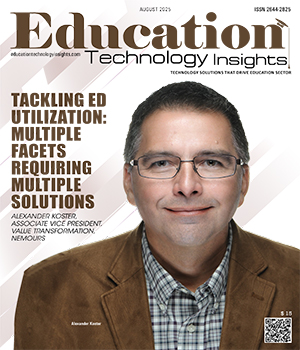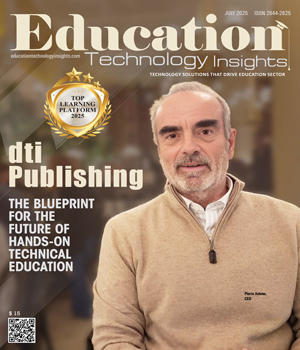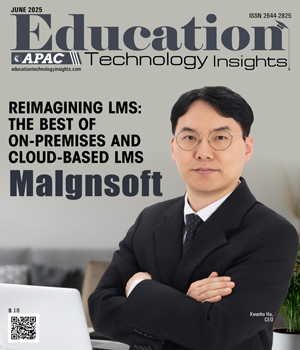THANK YOU FOR SUBSCRIBING
Be first to read the latest tech news, Industry Leader's Insights, and CIO interviews of medium and large enterprises exclusively from Education Technology Insights
How the EdTech and HRTech space are merging
Florian Chilla, Principal and Co-Founder,Taptrove Ventures
 Florian Chilla, Principal and Co-Founder,Taptrove Ventures
Florian Chilla, Principal and Co-Founder,Taptrove VenturesInvestments in Education startups are on the rise. Driven by the pick-up in platform activity following the pandemic, it is forecasted that edtech investments are up +15 percent in 2020, to € 6.4 billion. It is interesting to think about how this capital will change solutions and underlying technologies. The technologies being developed will not only have an impact on education. More and more, the distinction between HR and (Workforce) Education, especially when it comes to the underlying data, is blurring. To clarify this statement, we’ve listed a number of solutions that (potentially) show how the spaces are getting less and less distinct.
• Skills ontology: Probably the biggest and arguable most profound link can be found in skills mapping. Understanding how skills are linked and altered is fundamental in both an education and HR use-case. Companies that are able to build dynamic ways of linking skills to jobs will create a major competitive advantage. That implies having access to accurate overarching jobs taxonomy, which denotes how jobs are split in terms of skills. At the same time, these skills, ontology, is incredibly valuable in education. It helps improve the accountability of programs and their impact on learners. Recently we have seen companies that specialize in a job and skills segment, showing use-cases in education and HR. As the outcomes will be more trustworthy on the scale, it is expected that trend will continue in the coming years.
• Assessments: play a vital role in any recruitment process. Over the last five years, emerging technology got a lot better in giving an objective view on a candidate’s fit for a role. Moreover, automating the assessment process allows us to move it up the hiring funnel and screen more candidates. A benefit of these assessment players is that they can motivate why a candidate was rated the way it was. If a candidate does not pass the test, this person can get detailed feedback on their skills gaps. Needless to say, this is great input for education players. One could imagine how skills gaps could be linked with upskilling providers, motivating lessons, and giving talents tangible outcomes.
" Understanding how skills are linked and altered is fundamental in both an education and HR use-case."
• Internal mobility: More and more HR teams are busy streamlining their internal mobility programs. Tons of research point to the benefits for organisations of moving people around within a company. While these horizontal moves do not always require extensive training, a more extensive reskilling program is often required. Solutions to close this gap are emerging. These solutions would ideally leverage the above data and create an objective assessment of a person’s current skill set (both hard skills and soft skills), his or her ability and motivation to gain the skills required, and what the appropriate program is to get to that level. While it can have benefits across a range of different internal initiatives, with the rise of automation, this could potentially profoundly change the way that talent acquisition and people offboarding is regarded. It is clear that, on top of the use-case and buyer, the winning platform can have its origin in both education and HR.
These are just a few examples of solutions that will increasingly play a role in both Education and HR. The red thread through these technologies is their ability to create or leverage proprietary work data. Taptrove Ventures, a new European WorkTech VC, believes that this trend will grow and not stop at Education and HR. By leveraging work data coming from different technologies, originating in Finance and Wellness, people can become more productive, employable, and engaged with their work. Fueled by underlying macro trends, an overarching space has the potential to make work more fair and meaningful for everyone. And hence, finally, getting closer to Confucius’ famous work promise.
Read Also
Leading IT with Innovation, Empathy and Customer Focus at Embry-Riddle
Cyber Preparedness: Protecting Students from Digital Dangers
Redefining Student Success in the Digital Age
Leading Inclusive and Smarter Learning
Designing Education Experiences that Motivate, Engage and Endure
Empowering Innovation through Intervention: A Vision for Inclusive, Tech-Driven Education at Darlington County School District

I agree We use cookies on this website to enhance your user experience. By clicking any link on this page you are giving your consent for us to set cookies. More info























